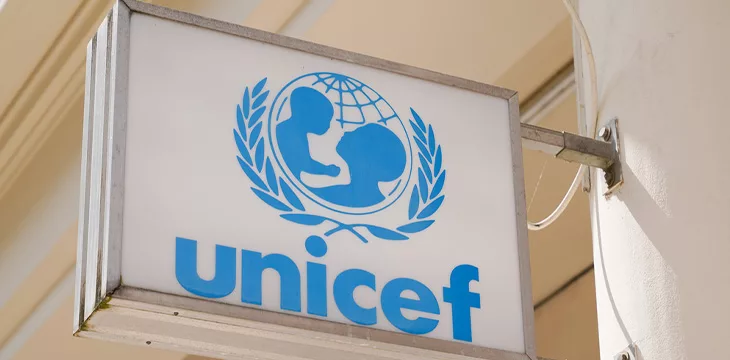The United Nations Children’s Fund (UNICEF) has announced a $400,000 fund for promising startups building around blockchain and artificial intelligence (AI) but with a focus on developing economies.
Dubbed the UNICEF Venture Fund, the latest capital injection is earmarked for startups that have received seed funding in the past and have met their initial objectives. According to an official statement, the funds will be deployed toward onboarding its third growth cohort since the formal launch in late 2021.
After a careful study of several applications, the fund selected three firms demonstrating significant promise in AI and blockchain to join its list of startups. Blockchain-based Rumsan from Nepal, Xcapit from Argentina, and AI-focused Tilli in Sri Lanka bring the number of UNICEF Venture Fund startups to 15.
Selected startups will have access to $400,000 in either fiat or digital assets in addition to regulatory and technical support from UNICEF’s partners.
Rumsan, one of the selected startups, has a history with UNICEF after its deployment in a digital cash and voucher assistance (CVA) project in 2023. Leveraging blockchain, the company demonstrated competence in transparency and data handling while providing the Nepalese unbanked population with an array of financial services.
A pilot evaluation by UNICEF disclosed that Rumsan’s blockchain-based CVA solution outperformed traditional platforms by eliminating users’ need for traditional bank accounts. The company is expected to fully integrate digital assets with the capital injection after rolling out beneficiary management functionalities with its initial seed funding.
XCapit, a self-custodial Web3 wallet solution from Argentina, made the cut for its financial services to unbanked citizens in the country. Rather than the usual approach, XCapit incorporates gamified savings, a raft of financial planning tools for users, and escrow, stablecoins, and loan functionalities.
Tilli, the only AI-powered firm in the third cohort, uses emerging technology to establish a social-emotional learning (SEL) tool for children under the age of 10. After racking up a swathe of initial success, the Sri Lankan-based company says it will use the funds to set up a Teacher’s Dashboard and Assessment Tool in the coming months.
UNICEF’s tango with emerging technologies
Since blockchain became mainstream, the UN agency has turned to the technology to bring it closer to its lofty ambitions of protecting disadvantaged children. One early use case from 2019 saw UNICEF leverage blockchain to provide schools in Kyrgyzstan with internet access, and another leveraged mining to provide aid for charities in Syria.
In May, UNICEF inked a deal with Blockchain For Impact (BFI) to improve public health services in India, with the UN agency injecting a significant sum into the project.
With AI, UNICEF is keen on establishing proper guardrails to protect students using AI in educational settings and testing policy guidance with leading developers and nation-states.
In order for artificial intelligence (AI) to work right within the law and thrive in the face of growing challenges, it needs to integrate an enterprise blockchain system that ensures data input quality and ownership—allowing it to keep data safe while also guaranteeing the immutability of data. Check out CoinGeek’s coverage on this emerging tech to learn more why Enterprise blockchain will be the backbone of AI.
Watch: How do you certify a blockchain network?
width=”560″ height=”315″ frameborder=”0″ allowfullscreen=”allowfullscreen”>
New to blockchain? Check out CoinGeek’s Blockchain for Beginners section, the ultimate resource guide to learn more about blockchain technology.
This news is republished from another source. You can check the original article here







